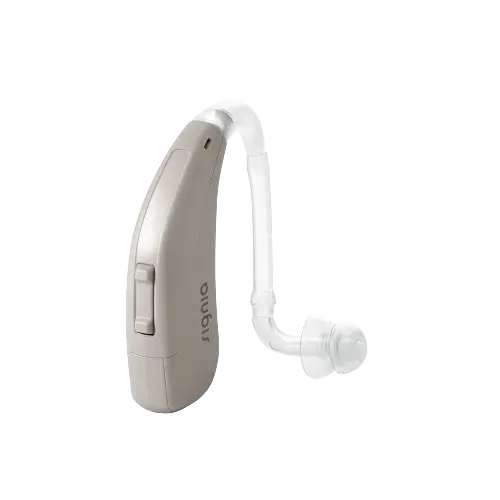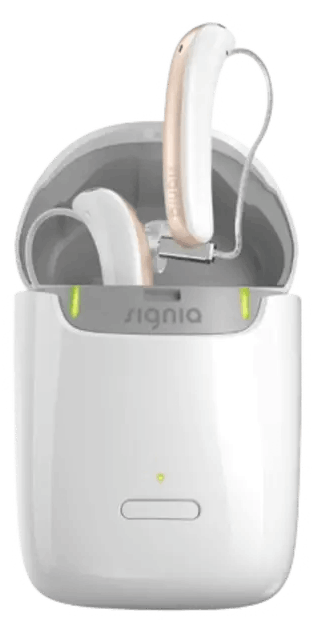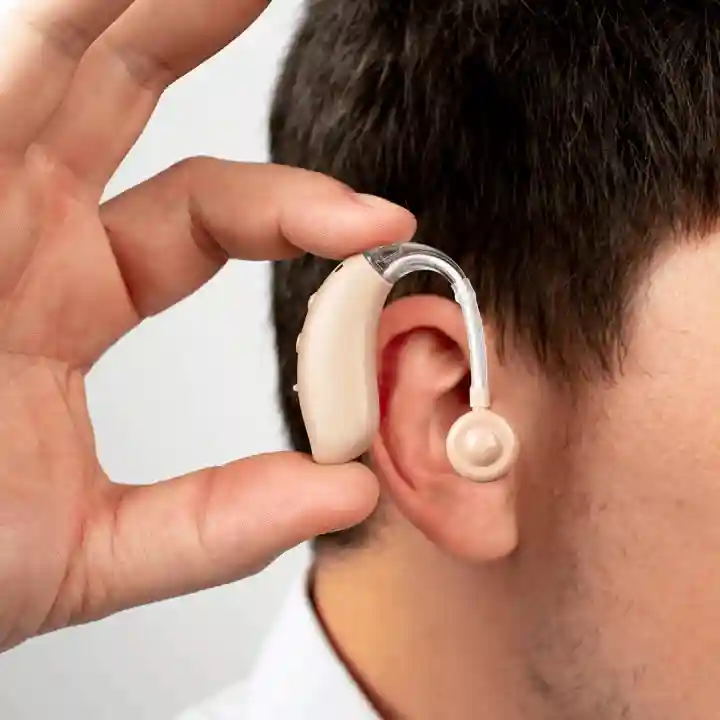Analog Hearing Aids
Take your performance to the next level

Analog hearing aids have proven themselves as trusted hearing solutions for the last several decades. The amplification method of analog hearing aids handles all detected sounds at a constant level, including speech and background noise, without algorithm-based processing. Users who want traditional sound quality will find their needs met through these devices because they deliver a “natural” listening experience. The devices offer basic yet powerful amplification features which make them popular because they combine simplicity with durability at affordable prices.
Delhi residents seeking reliable hearing aid assistance can find suitable analog and digital aids at Hearing Hope according to their specific hearing requirements. Special audiologists at Hearing Hope deliver highly customized solutions to users alongside precise fitting service as well as helpful guidance that enhances their quality of life through optimized hearing capabilities.
Analog hearing aids are suitable for everyday use and come in various styles, including behind-the-ear (BTE) and in-the-ear (ITE) formats. These hearing devices provide uncomplicated functionality, which makes them suitable for elderly people and beginners who need hearing assistance. Users can depend on these devices because they possess both enhanced battery durability and strong resistance to physical damage.
Who Should Use It?
- Analog hearing aids are probably best for:
- Seniors or individuals new to hearing aids
- People who prefer simple, manual control
- Users with mild to moderate hearing loss
- Individuals in quiet or less noisy environments

Hear the World Around You
Top Features
- Manual volume control
- Maintains sound at a constant value
- Extra affordable, hence low-cost
- Very long battery life
- Very easy to maintain and operate
Benefits of analog hearing aids
- More natural sound experience
- Very simple functionality enabling ease of use
- Sturdy build allows daily wear
- Very economical option for those with limited money
- Excellent choice for individuals with simple hearing needs

How Analog Hearing Aids Work
- It picks up a sound through a microphone
- Amplifies all sounds with analog circuitry
- Sends that amplified sound to the ear through a speaker
- Provides a steady sound amplification without any digital processing in it
- It works with just basic volume and tone settings
How to use
- Insert the hearing aid into or behind the ear
- Turn the switch on
- Manually adjust the sound to a comfortable level
- Change batteries whenever needed
- Keep the device clean and stored dry
Why Choose Hearing Hope
Here at Hearing Hope, hearing health is something that we advocate for. We offer:
- Guided Support from certified audiologists
- Wide range analog and digital hearing aids
- Personalized hearing assessments and fittings
- Friendly, professional customer care
- Trusted brand with quality and reliability
Talk to an Expert
Not sure which hearing aid suits you?
- Call Now: +91-9811168046
- Email:- hearinghope@gmail.com
Frequently Asked Questions
An analog hearing aid features components that use electronic circuitry and amplify all sounds coming into it for natural sound without distorting any of the sounds.
Yes, analog hearing aid; this is part of the various types Hearing Hope would offer users who want the simple way.
Mild to moderate gradual hearing loss can use analog hearing aids; severe loss may benefit more from a digital device.
Yes, most of the time, the inexpensive option of an analog hearing aid can become feasible for many people.
Under proper care, the analogue hearing aids last between 4 and 6 years or even longer, depending on the cleaning and replacement of batteries done regularly.
What Our Clients Say
Hello, I am Ritik. I recently bought a hearing aid from here. People were there very friendly and helpful and explained it very calmly and reasonably how to use it and their service was very good.

Ritik Mehta
Got new machine feeling better and balanced. Most important that they understand the need of person who visits. Good experience doctor with expertise and staff well mannered. Thank you

Suman Kumar Mishra
I am a repeat customer of Hearing Hope and bought my new Hearing Aids from them. The whole team is very customer-friendly and gives service with a smile. All the very best to the whole team!

Prakash Sharma
The staff was very professional and friendly. They gave my grandmother a very good audiometry and hearing aid trial at home. I would recommend Hearing Hope for your needs.

Srishti Banzal
Happy with service. The staff is very co-operative. They provide the best services to their patients and Explained about the product and provided a good hearing aid for my brother. Thanks.



